VDS vs VPS
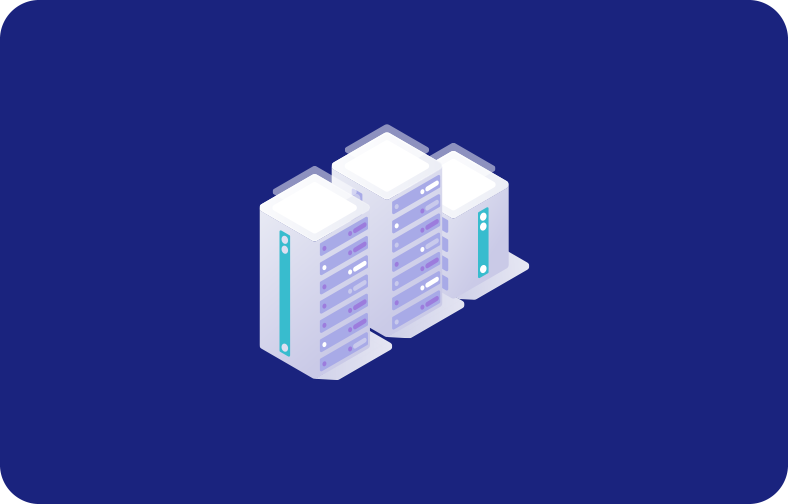
The choice of the appropriate hosting service would then mean a thorough understanding of the subtle differences between Virtual Dedicated Servers (VDS) and Virtual Private Servers (VPS). These configurations, in turn, play different roles in enhancing the performance of websites through virtualization technologies, addressing needs regarding scalability, control, and resource allocation. This section sets the ground for an in-depth analysis of these different kinds and categories.
VDS provides dedicated server functionality within a virtualized environment. It offers dedicated resources on a single physical server for the highest performance level and advanced security, making it perfect for demanding applications such as large e-commerce platforms or extensive databases.
In contrast, a VPS shares a physical server but isolates its environments into multiple virtual servers, each operating independently with its operating system and applications. This configuration offers a cost-effective solution with better resource allocation and privacy compared to shared hosting.
Our article begins with a comprehensive table that summarizes the key points about VDS and VPS hosting. This table offers a quick overview before delving deeper into each topic, enhancing the overall user experience.
This guide directly compares VDS and VPS hosting, exploring their respective advantages in hosting environments, how they allocate resources under each service, and the best use cases for either. This detailed comparison of hosting giants will enable you to make an informed decision on the most fitting hosting solution for you.

Comparison Table VDS vs VPS
| Feature | VPS | VDS |
|---|---|---|
| Technology and Virtualization | Utilizes OpenVZ technology for OS-level virtualization, enhancing operational speed but sharing resources. | Employs KVM technology, allowing OS installations and full resource dedication, similar to a physical desktop environment. |
| Resource Allocation | Shares physical server resources like CPU and RAM, which can lead to resource contention among hosted instances. | Provides dedicated resources to each server, eliminating resource contention and ensuring consistent performance. |
| Performance | Adequate for small to medium websites; may falter under high load or resource-intensive applications due to shared resources. | Superior performance suitable for high-traffic websites and resource-heavy applications due to guaranteed resource allocation. |
| Cost Efficiency | More budget-friendly due to the shared resource model, making it cost-effective for smaller scale projects. | Generally more expensive as each server receives dedicated resources, reflecting higher costs per server. |
| Scalability and Control | Offers moderate scalability and some level of control including root access, though limited by shared resources. | Allows extensive control and customization without limitations, providing scalability similar to dedicated servers. |
| Security | Offers robust security, but shared resources can pose risks; a compromised server might impact others on the same physical resource. | Enhanced security due to isolated environments; each server's issues do not affect others, minimizing risk exposure. |
| Suitability and Use Cases | Ideal for lower-load tasks like hosting small e-commerce sites, office applications, and remote desktop services. | Best suited for demanding tasks such as video/audio streaming, large e-commerce platforms, and high-traffic applications. |
| Hosting Terminology | Known for virtual machines created via OS-level virtualization, implying a less isolated environment. | Referred to as machines created using paravirtualization, which offers a higher degree of isolation and resource dedication. |
What is VPS
Within the vast range of web hosting scenarios, the Virtual Private Server (VPS) hosting environment is a pretty good mix of shared and dedicated hosting. Designed for users who need a lot of control and resource isolation over what shared hosting can provide, VPS is a scalable and cost-effective platform that provides enhanced control fit for an array of businesses and technical uses.
Definition and explanation of VPS
VPS hosting allows users to obtain a virtualized server environment on a partitioned physical server. Each virtual server functions independently and securely, isolated from others, which enables the installation of custom applications and configuration settings akin to those on a dedicated server. The use of virtualization technology to divide a single physical server into multiple servers ensures more excellent stability and security than is typically found in shared hosting environments.
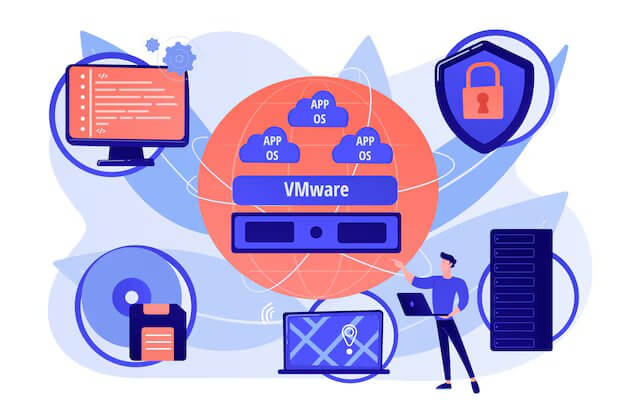
How VPS works
Through a process known as virtualization, a physical server is divided into several virtual servers using virtualization software or a hypervisor. Each virtual server acts independently and has dedicated resources like CPU, RAM, disk space, and bandwidth, which are allocated from the underlying physical hardware. This setup allows VPS users to perform many actions that are usually only possible on dedicated servers, such as system reboots and having root access to install any necessary software.
Use cases for VPS
VPS is highly flexible and applicable across various domains. It is the best solution for small and medium-sized businesses looking to balance cost, flexibility, and performance. Mainly, the VPS is an outstanding choice for mail servers, websites, or database hosting for businesses that attract a medium level of traffic.
Additionally, Virtual Private Server is perfect for development and testing environments, allowing developers to run and test applications before live deployment. It also accommodates businesses experiencing growth spurts or seasonal traffic spikes, thanks to its scalability.
What is VDS
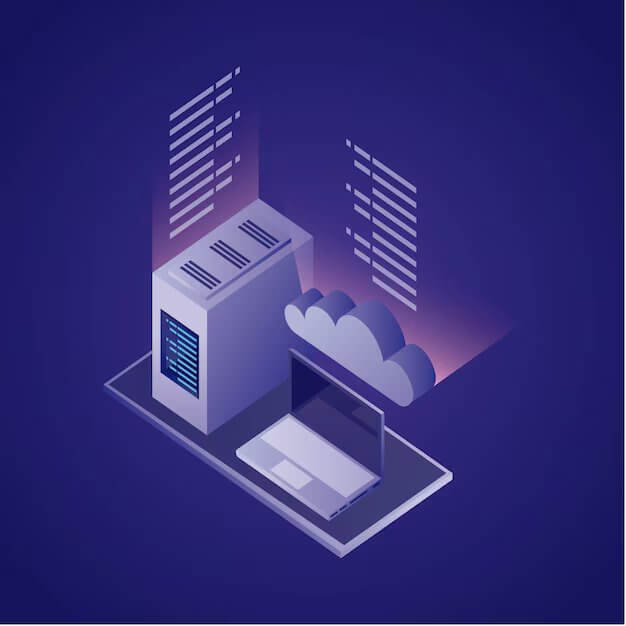
As we explore the world of web hosting, the nuances of the types of hosting become more critical—especially the differences between Virtual Private Servers and Virtual Dedicated Servers. Although these two hosting solutions have similar structures, they offer different benefits to the end-users based on resource management and performance and fit the purposes needed.
In the next section, we will explore the VDS concept in greater detail to highlight how it stands apart from its VPS counterpart and the specific advantages it provides, especially in environments demanding high levels of resource dedication and security.
Definition and explanation of VDS
A Virtual Dedicated Server (VDS) represents an intermediate level of hosting, positioned between shared solutions and dedicated servers. Unlike VPS configurations, where every client shares the common resources of the same physical server, in VDS, each user is allocated their own private set of dedicated resources. This setup is based on the latest virtualization technology, wherein one physical server is logically partitioned into several independent virtual servers, each having its separate CPU, RAM, and disk space, with independent operating systems.
This user-friendly architecture not only improves performance by preventing other users from influencing resource allocation but also enhances security and stability. Each VDS operates independently of its own operating system, meaning that software or security issues in one virtual machine do not impact the functionality of others. This isolation makes VDS a preferred choice for businesses that require a robust hosting environment to handle complex, resource-intensive applications without the cost of an entire physical server.
How VDS differ from VPS in terms of dedicated resources allocated
A Virtual Dedicated Server is different from a Virtual Private Server in that a VPS does not share the allocated resources. VPS hosting involves sharing the resources of a physical server with other virtual servers, but the difference is within the operating system; each runs its own. This is based on the Virtual Private Server acting as an automated server.
This arrangement can lead to resource contention. For instance, if one of the virtual private servers experiences a high spike in resource demand, it might consume more than its fair share, significantly reducing the performance of others on the same physical machine.
In contrast, a VDS allocates dedicated resources for each virtual server, ensuring that every Virtual Dedicated Server runs at total capacity without interference from any neighbors. This dedicated allocation replicates the performance and resource availability of a dedicated server, providing users with predictable and consistent performance. Such an environment is particularly beneficial for applications that require high processing power and memory usage without the risk of performance degradation due to other users' activities.

Use cases for VDS
Virtual Dedicated Servers are ideally suited for several high-demand scenarios due to their robust resource allocation and superior control features. Large-scale websites and e-commerce platforms that attract high traffic volumes benefit significantly from VDS hosting, as it ensures consistent performance and uptime—critical for maintaining user engagement and transaction completion rates.
Additionally, organizations handling sensitive data, such as financial institutions and healthcare providers, find VDS advantageous for its enhanced security capabilities. The isolated environment minimizes risks associated with shared resources, making it ideal for compliance-driven industries.
VDS environments are perfect for developers and businesses requiring custom software installations or specific server configurations that are not feasible on shared or VPS hosting. The ability to implement comprehensive security measures and perform in-depth system modifications without affecting others makes VDS a preferred choice for software development and testing environments.
This setup facilitates a stable and controlled development platform and supports intensive data processing applications that single servers could not efficiently handle on a shared resource model.
Why VPSServer become one of your best choices
VPSServer stands out as a top choice for those exploring cloud hosting and VPS server options, thanks to its extensive global network of more than 20 locations. This widespread presence ensures low latency and high performance, making websites accessible and responsive to users worldwide.
Such capabilities are crucial for everything from tiny blogs to global e-commerce platforms, ensuring that all sites deliver optimum user experience.
At the technological core of VPSServer are cutting-edge components like 2.7 GHz Intel Xeon Skylake processors and NvME SSDs, which provide lightning-fast speeds and efficient data handling.
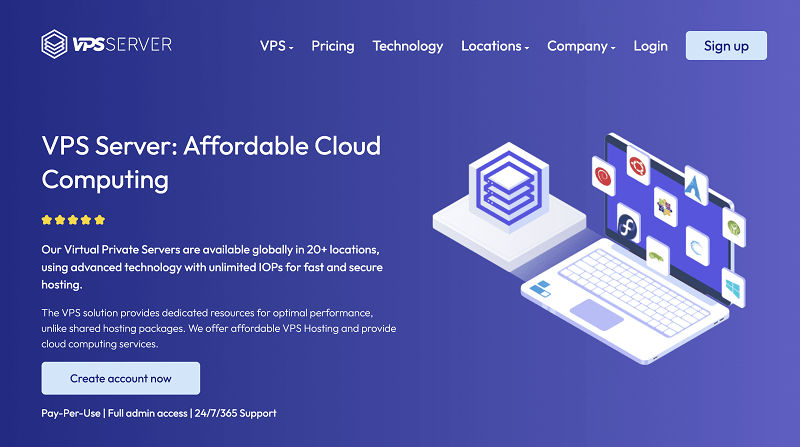
The use of KVM virtualization technology also enhances security and performance by facilitating direct access to hardware. Additionally, unlimited IOPS capabilities ensure seamless and instantaneous data transfer, effectively supporting high-performance needs.
VPSServer is not only technologically adept but also excels in scalability and customer support. It offers flexible resource upgrades and robust infrastructure to handle traffic surges, paired with 24/7 expert support to assist with any issues.
The blend of cutting-edge technology, adaptable solutions, and committed customer support makes VPSServer a trustworthy and effective host, ensuring your online requirements are smoothly fulfilled.
Comparing VPS and VDS
The more one delves into the details and specifics of Virtual Private Servers (VPS) and Virtual Dedicated Servers (VDS), the more precise the considerations become for choosing between these two hosting solutions, which emerge from factors like cost, performance requirements, and level of control. Each type offers unique advantages depending on your hosting needs.
Whether you are looking to host high-uptime, high-performance websites or manage several testing environments, understanding the critical differences between VPS and VDS can pave the way for an informed choice.
Technology and Virtualization
VPS Hosting: VPS hosting is the physical partitioning of a server into several virtual ones. Each segment, or virtual server, acts as an isolated virtual private server on a physical computer, sharing the core hardware like CPU and RAM with other virtual servers. This efficient utilization of server resources allows each tenant to experience the semblance of using a standalone server. It facilitates the flexibility to install custom software and fully manage their operating systems, which is particularly beneficial for businesses that need more control than what is offered by shared hosting but do not require a dedicated server.
This setup, known for its cost-effectiveness, is a popular choice among small to medium-sized enterprises that seek to optimize cost without compromising on the capability to scale resources according to demand. This flexibility and control empower businesses to make the right choice for their needs.
In contrast, VDS offers a higher level of virtualization that provides users complete control over an entire server, simulating a dedicated server experience and granting users unparalleled autonomy over their hosting resources. This technology not only allows for the installation of any operating system of choice but also ensures that each VDS operates independently without being affected by other virtual machines, making it a perfect solution for high-traffic websites, complex databases, and extensive application development environments.
This level of security and performance reassures IT professionals and businesses seeking high-security solutions, as they can choose any operating system they prefer and install bespoke security measures, providing a robust foundation for supporting mission-critical systems.
Resources Allocation
Resource Management in VPS Hosting: Within a VPS framework, multiple virtual servers share critical physical hosting resources such as CPU, RAM, and disk space. This collective resource allocation model can result in resource competition, where the demands of one virtual server might diminish the resources accessible to the others.
High demand from one virtual machine, triggered by increased traffic or intensive application use, might compromise the performance of others hosted on the same server. This scenario not only affects the scalability but also introduces potential security risks, as the shared hosting environment may allow for unintended interactions between different users’ activities.
Resource Management in VDS Hosting: On the other hand, virtual dedicated server (VDS) hosting provides each virtual server with its own set of dedicated resources, ensuring complete isolation from others. Allocating all the resources of a single physical server to just one tenant, VDS removes any chance of resource competition.
This isolation ensures uniform and dependable performance, which is essential for applications that require consistent reliability and the availability of resources. Particularly, critical applications such as financial transaction platforms, expansive databases, and real-time data processing benefit significantly from this stability. For these high-stake applications, VDS hosting is transformative, delivering a caliber of performance and security that VPS hosting cannot.
Performance
When discussing performance capabilities, VPS hosting is typically adequate for small to medium-sized websites and applications. Its structure, which involves sharing core resources like CPU and RAM across multiple virtual server environments, is generally sufficient for everyday needs. However, the shared resource nature of a VPS can become a limitation under certain conditions. Specifically, a Virtual Private Server vps might experience performance bottlenecks during spikes in web traffic or when running resource-intensive applications like large databases or complex analytics platforms. These limitations highlight the need for a more robust hosting solution.
On the other hand, VDS hosting provides a more robust solution by offering dedicated resources to each tenant. This means that VDS users benefit from the total capacity of the server, which is allocated solely to their virtual server. Such an arrangement is particularly advantageous in high-demand scenarios, ensuring that the server can handle significant increases in traffic or resource demands without any performance degradation. The hosting environment provided by a VDS delivers exceptional performance and ensures stable and dependable functioning, even during intensive usage. This makes VDS a perfect option for essential applications that need steady, high-quality performance, along with improved security and precise control over server settings. Opting for VDS hosting can markedly boost the performance and security of your website or application.
Cost Efficiency
A critical distinction between VPS and VDS hosting lies in VPS's resource-sharing approach, which adds to its affordability. In VPS hosting, CPU and RAM resources are shared among multiple users, making it an economical choice. This approach not only cuts expenses but also provides a reliable and scalable setting for companies, perfect for maintaining IT budgets while supporting effective operations.
Conversely, VDS hosting tends to be pricier because it provides dedicated resources to each user, enhancing site performance significantly. With VDS, a single tenant has exclusive access to the resources of an entire server, eliminating competition for resources. This exclusivity dramatically enhances security and site functionality, positioning VDS as a superior option for businesses experiencing high user traffic, managing large-scale online stores, or dealing with sensitive data. The increased cost of VDS is offset by its robust security features and reliable resource allocation, which are essential for supporting critical business functions effectively.
Scalability and control
VPS hosting, while providing a notable degree of scalability and control, has its limitations. It grants users root access and the flexibility to tailor their virtual servers according to specific needs, which is a significant advantage over more restrictive hosting models. However, the scalability is often limited by the shared nature of the underlying server resources. Users share core components like CPU and RAM, which can lead to potential bottlenecks as demand increases. This limitation might not be ideal for users with high-demand requirements, who might find a more advanced solution like VDS hosting more suitable.
In contrast, VDS hosting offers not just scalability and control but a level of customization and control that is on par with dedicated servers. This makes it an excellent option for users with high-demand requirements. With VDS, users enjoy the exclusive allocation of entire hosting resources, which eliminates competition for resources and virtually removes limitations on performance scalability. This setup enables users to fully customize their server environment, from installing custom software to configuring detailed security protocols. Such comprehensive control and customization make VDS hosting a preferred choice for businesses and applications that demand rigorous performance standards and robust security measures, providing them with the autonomy necessary to optimize their hosting environment fully.
Security
Security is critical in any hosting setup. VPS hosting includes essential security features like encryption and firewall protection. Since several virtual servers utilize the same physical resources, vulnerabilities might become apparent if any one server is breached. This could impact shared resources such as CPU and RAM.
Therefore, it's crucial to emphasize the need for stringent security measures and regular monitoring in a VPS hosting environment to mitigate these risks associated with the communal resource model effectively.
On the other hand, VDS hosting provides an isolated environment, a feature that significantly bolsters security. Each virtual dedicated server in a VDS environment operates independently on its server, which means issues in one server won't impact others. This separation is significant for organizations dealing with sensitive data or that require high-security standards, as it dramatically reduces the risk of interference between servers.
VDS users benefit from complete control over their security measures, enabling them to implement custom firewalls, dedicated intrusion detection systems, and other security protocols to satisfy rigorous security requirements. This level of control and independence makes VDS an ideal choice for organizations with critical operations, such as financial institutions and healthcare providers, who cannot afford security breaches.
Suitability and Use Cases
VPS hosting is ideally suited for companies that need more capabilities than what shared hosting provides but do not yet need a dedicated server. This type of hosting is perfect for smaller e-commerce websites, mid-sized blogs, and personal portfolio sites, which all benefit from the balance of affordability and functionality offered by a virtual server.
VPS users enjoy access to a semi-private pool of resources, allowing for enhanced customization and scalability when compared to traditional shared hosting setups. This scalability makes VPS hosting a sound option for growing businesses that require the flexibility to adjust their resource use swiftly in response to changes in web traffic and computational needs. Overall, VPS hosting provides businesses with the ability to control their hosting environment efficiently.
VDS, on the other hand, is ideal for the heaviest tasks, such as large e-commerce platforms, heavy media streaming, or applications experiencing heavy traffic. In VDS hosting, all the resources are allocated to a single tenant, providing dedicated resources for maximum performance. This means that VDS users experience consistent, high-performance levels, making it suitable for high-stakes operations that require reliable uptime and rapid data processing.
Such configurations are particularly beneficial for businesses that manage large volumes of transactions or multimedia content that demands extensive computation and bandwidth. This level of resource allocation also enhances security, as the dedicated environment minimizes the risk of vulnerabilities common in shared resource setups.
Hosting Terminology
In the realm of hosting, the terms VPS and VDS are often highlighted to denote the level of resource isolation and control available. VPS, or Virtual Private Server, suggests a level of privacy and separation from other users on the same server, typically suited for personal to medium business applications. VDS, which stands for Virtual Dedicated Server, brings even a higher degree of isolation; it allows using only the resources allocated to it, very often compared to the performance of a dedicated server, and thus, it's perfectly suitable for high-end, resource-consuming applications.
Understanding these features of VPS and VDS hosting allows the web hosting firm to decide what will best meet the technical requirements for supporting business. Each type offers distinct advantages and may be the best solution depending on your specific needs.
Choosing between VDS and VPS
A number of essential elements have to be considered in selecting the most appropriate hosting solution, including the choice between a Virtual Private Server and a Virtual Dedicated Server. Although VDS and VPS offer virtualized environments, the way the two share, assign, and control resources is absolutely different, significantly affecting performance, security, and scalability.
The VDS provides an environment like that of a dedicated server, in which the server's resources are dedicated to the tenancy of a single tenant. This leads to better and consistent operation and higher performance levels but, most importantly, to more exclusive allocation, especially on resource-intensive applications, such as robust e-commerce email servers or large e-commerce platforms.
While VDS can be easily seen on a hardware level because it is a complete virtual server, a VPS is the division of one actual physical server into a few virtual servers using, for example, VMware or Hyper-V technology. Each of them can host many users with their own operating system, all opportunities opened to them, and installing custom software.
In fact, the differences between VDS and VPS usually narrow down to the needs of the sites they are hosting. A business that needs a hosting provider with the right balance between costs and performance will find VPS hosting rather attractive. It enables businesses to derive all the benefits of a dedicated server but at a fraction of the cost. This environment is suitable for SMBs that require root access and the ability to deploy test environments or host multiple websites that don’t demand extensive server resources.
On the other hand, VDS hosting is ideal for users who require complete control and resource allocation of dedicated hosting without sharing their server environment with other users. This makes VDS a perfect choice for businesses whose applications demand guaranteed processing power and server memory, such as video streaming services or high-traffic web applications.
Furthermore, the virtualization software and underlying physical hardware used in both VDS and VPS can affect performance. VDS typically offers more robust virtualization technology solutions that can provide entire hosting resources to a user, enhancing data security and server stability. VPS, although slightly limited by the shared resources model, still offers significant advantages over traditional shared hosting solutions, particularly in terms of scalability and the ability to manage and allocate disk space and server resources efficiently.
Ultimately, the decision to choose between a VDS and a VPS should be guided by your service's specific requirements, anticipated load and traffic, and overall business objectives. Ensure that you select a web hosting provider that aligns with your needs for more control, resource allocation, and budget considerations.
Frequently Asked Questions
What is the main difference between VDS and VPS hosting?
A Virtual Dedicated Server is essentially a single server within a physical server that allocates dedicated resources, creating an optimal environment for security and performance for demanding applications. In contrast, a Virtual Private Server (VPS) setup hosts multiple virtual servers on same physical server, sharing available hardware resources, which can lead to "resource contention."
Virtual Dedicated Server eliminates this by allocating dedicated resources to each virtual server, ensuring consistent, reliable performance without competition. On the other hand, Virtual Private Server VPS divides the server resources but isolates its environments for independent operation; thus, it offers a more cost-effective solution with better resource allocation than shared hosting.
How VPS Works and Some of the Most Common Use Cases?
VPS runs on virtualization technology that partitions one server into several standalone servers. Each separate server contains its own operating system, applications, and dedicated resources such as CPU and RAM. This setup is perfect for businesses that require much more control than what shared hosting can provide, making it ideal for hosting medium-traffic websites, development environments, or databases.
What advantages does VDS offer over VPS?
VDS offers dedicated hosting resources, which means each virtual server operates independently without resource sharing, leading to better performance and reliability. This setup is ideal for resource-intensive applications, large e-commerce sites, and scenarios requiring robust security measures.
Why might a business choose VPS hosting over VDS?
VPS hosting is relatively cheaper and thus preferred by organizations that need more than shared hosting but have not developed high resource demands that would justify the higher cost of VDS. It is especially suitable for small to mid-level companies with moderate traffic volumes.
What are the security advantages of using a VDS over a VPS?
VDS hosting offers a highly secure environment by operating servers in an isolated setup. If issues arise on one server, they remain contained within that server and do not affect others. The isolation offered by a Virtual Dedicated Server is fundamental in sectors like finance and healthcare, which have become priority concerns because the effect of a breach can affect all. Thus, implementing robust isolation measures is essential to safeguard sensitive data effectively.
How do scalability and control compare between VPS and VDS hosting?
Scalability and control features vary significantly between VPS and VDS hosting. VPS offers scalability through shared resources, which can be adjusted relatively quickly as needs change, but this may come with the potential for resource contention among virtual servers.
VDS, on the other hand, offers superior control and scalability without the risk of interference, as each server operates independently with its dedicated resources. This setup is preferable for applications requiring high reliability and performance, making VDS a better choice for more extensive or more resource-intensive operations.
Which type of hosting is better suited for handling high-traffic volumes?
VDS is highly suited for managing high traffic volumes, thanks to its dedicated hosting resources for each server. This configuration ensures stable performance and high uptime, both crucial for maintaining user engagement and operational continuity in demanding environments.
Moreover, VDS offers greater scalability and more control, akin to dedicated servers, making it ideal for businesses that require extensive customization and high resource availability. Therefore, VDS is often the preferred choice for large-scale e-commerce platforms, heavy media streaming, or high-traffic web applications.
How does the underlying technology affect the performance of VPS and VDS?
The type of virtualization technology used can significantly impact the performance. VDS generally offers more robust virtualization options that provide dedicated server resources to the user, enhancing security and stability. In contrast, VPS may have limitations due to the shared resource model but still offers substantial improvements over traditional shared hosting.
What should you consider when choosing a VPS hosting provider, and what are the typical features of VPS servers?
Deciding to choose a provider for VPS hosting certainly requires a couple of things in mind so that he lives up to your requirements. Uptime is very critical. Look for hosting providers who offer sustained service with at least 99.9% uptime. Another important aspect is the availability of support. Select a hosting provider that offers 24/7 support through telephone, email, and live chat.
This allows one to have elasticity in their resources, including CPU, RAM, and storage, as the business expands. They give the highest standards of security that involve firewalls, intrusion detection systems, and regular backups for all of your susceptible data. VPS Servers have full-featured services that improve both performance and reliability.
They offer dedicated hosting resources like CPU time, memory, and storage space, which are solely yours, unlike in shared hosting scenarios. Many VPS plans also grant complete root access, providing extensive flexibility for server customization and the capability to install specific software as needed. Additionally, VPS configurations often include a certain amount of bandwidth and one or more dedicated IP addresses, facilitating scalable, high-performance options that can handle variable traffic loads, ideally suited for expanding enterprises.













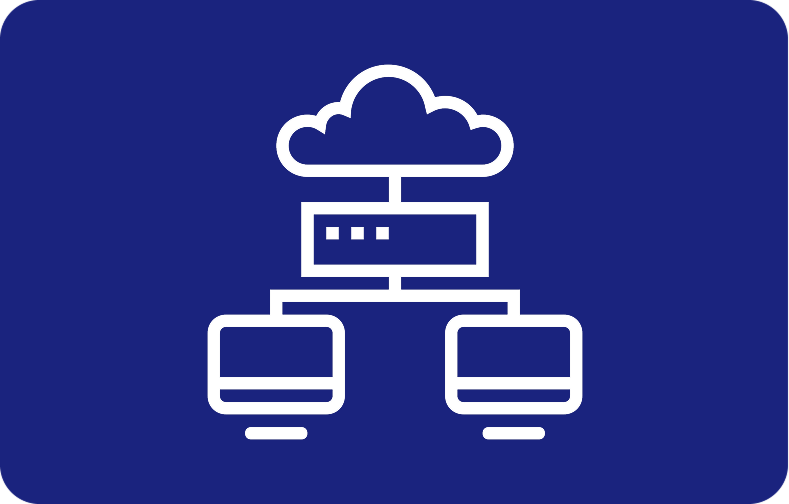



.webp)